Safety Tips
Keeping DTE Transformers Clear
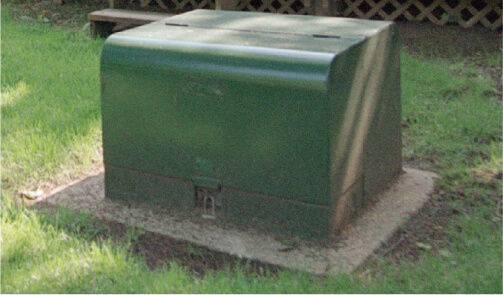
These green or grey metal boxes may be a familiar sight in your neighborhood. But did you know these boxes provide power to you and your neighbors? When landscaping or structures block this equipment, it creates unsafe work environments for our crews, poses potential safety hazards for you and your neighbors and can cause prolonged outages.
There are many reasons why it’s important to maintain recommended clearances around this and other equipment.
For Your Safety
In the event of a fire, DTE must access this equipment to shut off power to your home before firefighters can enter. Much like a fire hydrant, this equipment must be accessed quickly. Keeping these boxes clear of landscaping and other obstructions will keep you and your neighbors safe.
For Our Crews’ Safety
Crews need at least eight feet clear in the front and two feet on all other sides to safely work on a transformer. Landscaping and other obstructions can crowd a work area, causing a hazard. We may need to remove obstructions before work begins.
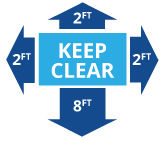
Remove Pre-Existing Obstructions
We ask that you safely and promptly remove any obstructions and follow the clearance rules, leaving eight feet clear in the front and two feet on all other sides.
Even if the obstructions were installed or planted long before you purchased your home, as the current homeowner, you are responsible for maintaining proper clearances.
When our crews need to quickly locate and safely access the transformer for repairs and maintenance, anything blocking equipment may be removed/trimmed and could be damaged. DTE will not replace landscaping or other items removed to gain safe access to the transformer. Debris will be left onsite for the homeowner to dispose.
If you are in the planning stages of landscaping, be sure to also refer to our “Right Tree, Right Place” guide. There you will find the best tree fit for your home or business while avoiding interference with overhead lines.
Remember to dig safely and call MISS DIG at 8-1-1 to locate underground utilities before you dig or plant. It’s free and it’s the law!
Safety Tips
Electrical Safety at Home
Find basic electrical safety tips below, and please also review the Electrical Safety Foundation International (ESFI) site covering safety inside and outside your home, information directed to children and more.
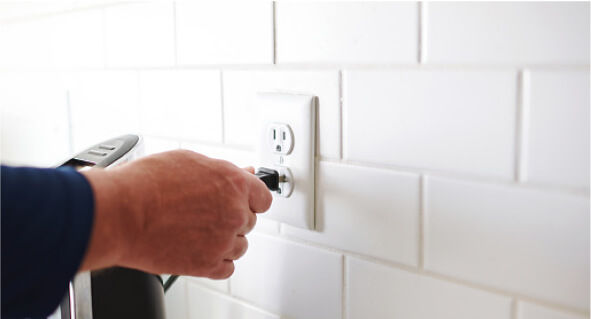
Inside Your Home
Unplug small electronics and appliances when you're not using them. This prevents them from turning on or short circuiting during a power surge.
Electricity and water: Never step into a flooded area if water is in contact with electrical outlets, appliances or cords. Don’t use electrical appliances or touch circuit breakers or fuses when you’re wet or standing in water.
Outlets with loose-fitting plugs, exposed wires or broken plates should be repaired or replaced by a qualified electrician. Use safety covers on all outlets accessible to children.
Space heating:
- Never try to heat your home using your stove, outdoor grill or any other appliance not specifically designed for indoor heating.
- Keep children and pets a safe distance from heating appliances.
- A portable space heater should be placed at least three feet away from flammable material and should never be left unattended. Keep children and pets a safe distance away.
- Turn off your space heater when leaving the house or going to bed.
- Maintain proper ventilation in the room where a heater is being used.
- Open the fireplace damper or open a window slightly to ensure the flow of fresh air and to prevent carbon monoxide build-up.
- Keep smoke and carbon monoxide detectors properly functioning on each level of your home and close to sleeping areas.
- Never use electric heaters near water because of the possibility of shock or electrocution.
- Avoid using extension cords with electric heaters.
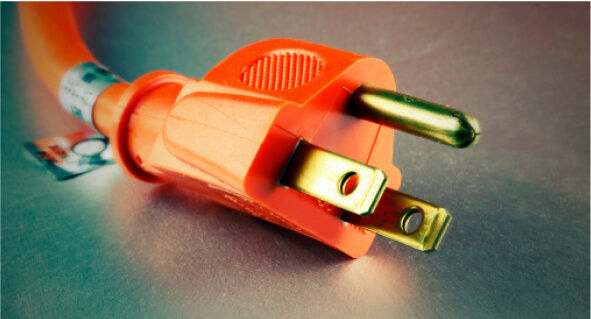
Outside Your Home
Make sure tools, appliances and holiday lights are approved for outdoor use. Outdoor tools and appliances should have heavier wiring, special insulation and a three-prong, grounded plug.
- Make sure extension cords are the right capacity for the tool or appliance with which it is used. Use grounded (three-prong) extension cords for outdoor tools and holiday lighting.
- Do not use electrical appliances or route extension cords near swimming pools. When using pool maintenance or rescue poles, be sure to keep them away from overhead power lines.
- Do not climb trees near power lines. Keep balloons, kites, fishing lines and aluminum poles away from overhead lines.
- If you’re planning to trim a tree near any power lines, we urge you to consult a professional tree-trimming service. Pole-to-pole overhead power lines carry high-voltage electricity that can cause serious or fatal injuries.
Safety Tips
Be Prepared and Stay Safe
Make a plan to ensure you and your loved ones are safe when extreme weather hits. Find tips below on preparing an emergency kit, having the right supplies handy in case you lose power and avoiding danger after a storm passes.
For more in-depth information on planning for extreme weather events, visit ready.gov, an official website of the U.S. government.
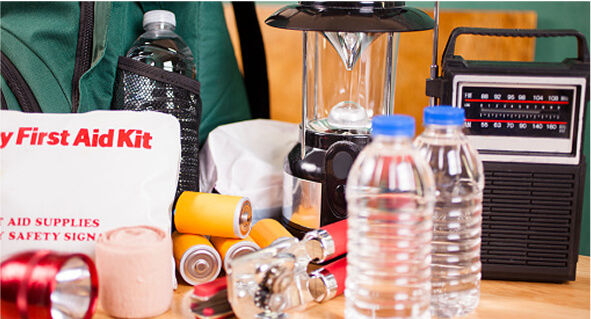
Emergency Kit Essentials
Assemble an emergency kit in advance with key items.
Assemble an emergency kit in advance. Key items include:
- Battery-powered radio or television (for storm news and power restoration updates), flashlights and/or lanterns and extra batteries
- Candles with holders and matches
- Bottled water and containers of water for cooking and washing. If a well is your source for water, plan ahead to determine how you will get drinking water
- Nonperishable food and a can opener; disposable plates and utensils
- Wind-up or battery-powered clock
- Corded telephone (doesn't require electricity)
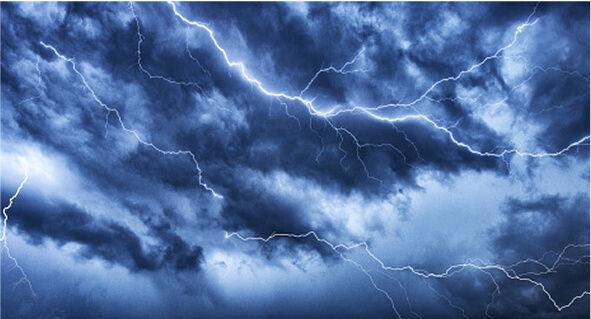
Storm Safety Tips
Be prepared and stay safe when bad weather approaches.
Don’t begin storm cleanup in your yard until power line repairs are complete. Energized power lines may be hidden in the brush.
Know how to open your garage door manually if it is equipped with an automatic opener.
Protect food in refrigerators and freezers by only opening the doors when absolutely necessary. A closed refrigerator will stay cold for 12 hours. Kept closed, a well-filled freezer will preserve food for two days.
Ask your health care service about emergency battery backup systems If you use electrically-powered life-support.
Use portable generators safely. Provided it’s installed and operated properly, a portable generator can be a good, temporary power supply for lighting, vital medical equipment, refrigerators, sump pumps and essential appliances.
When using a portable generator, be sure to keep it outside and away from windows and follow all other the manufacturer’s instructions to avoid harm or damaging your generator or appliances. Learn more about selecting, installing and operating a portable generator.
Unplug all heat-producing appliances — stoves, clothes dryers, irons and curling irons — especially if you leave your home during the outage. This minimizes the danger of a fire if power is restored while you are away.